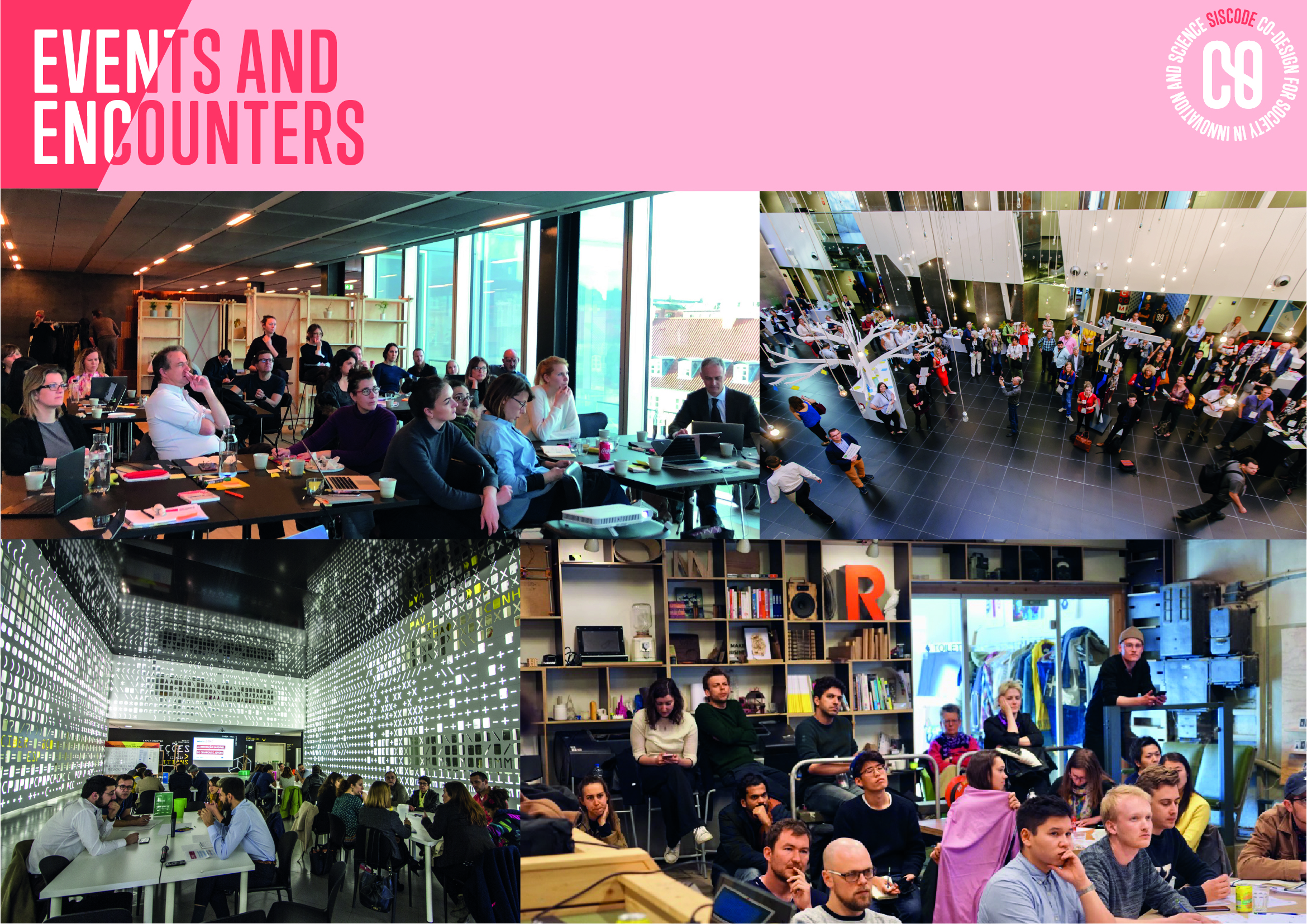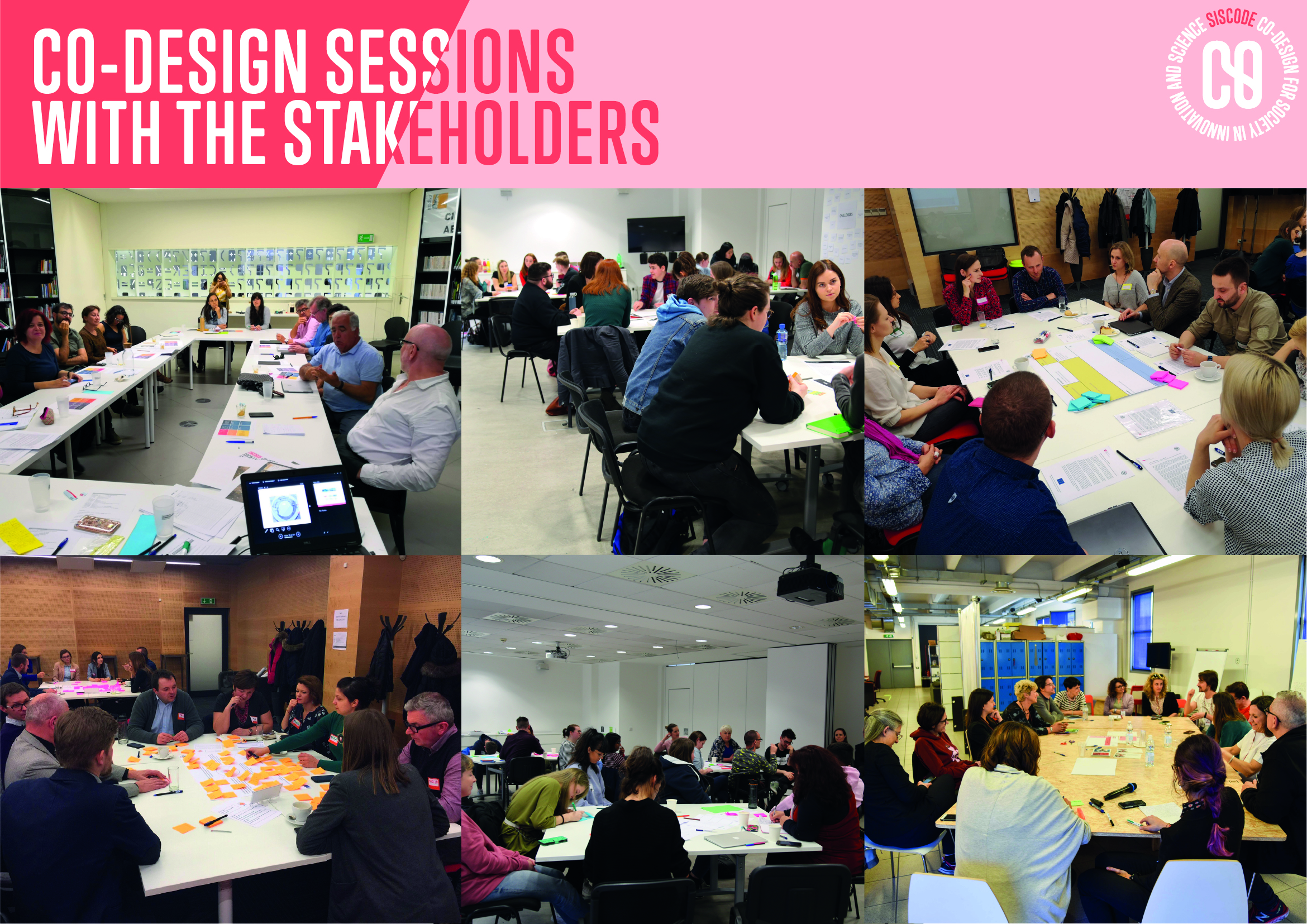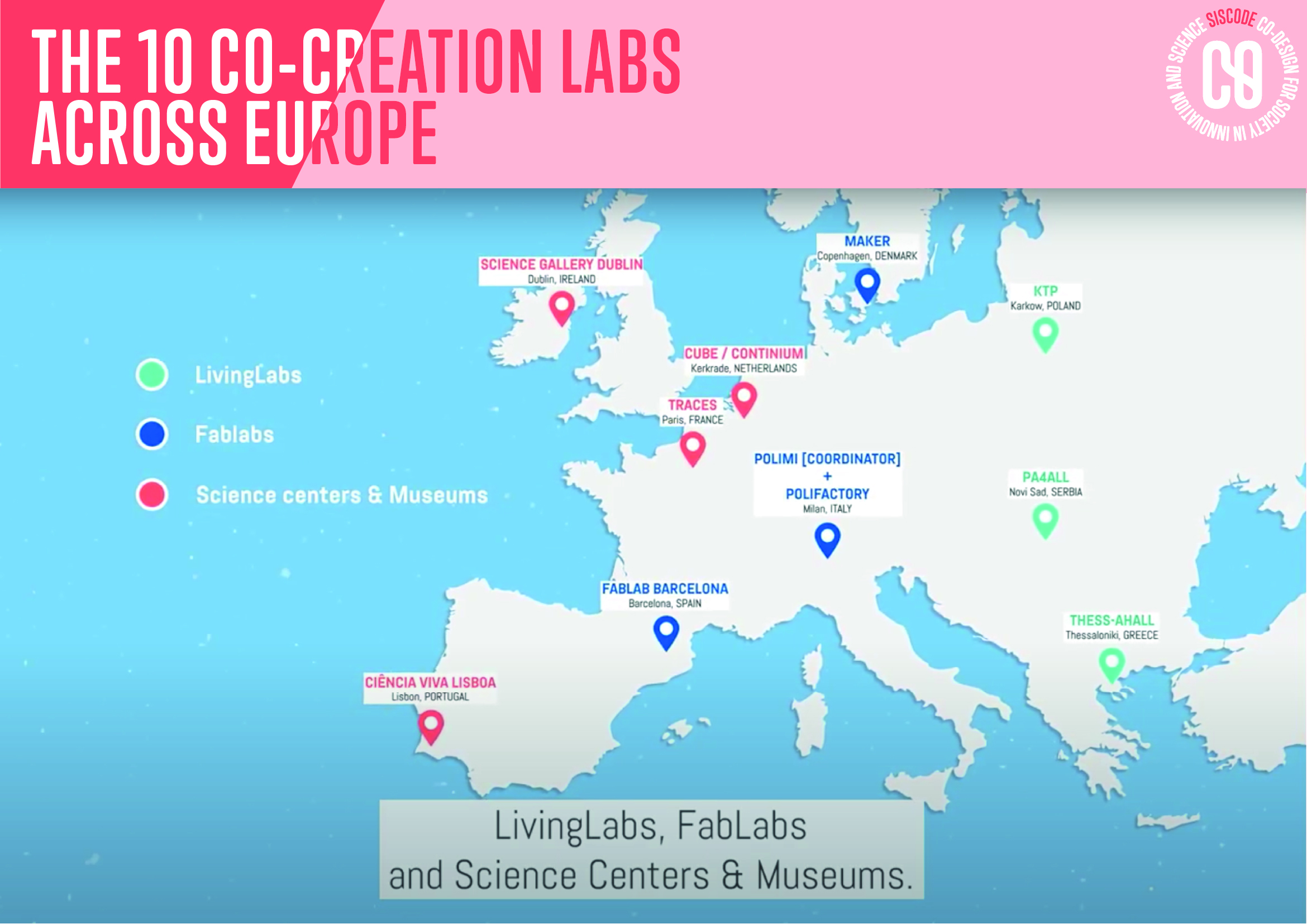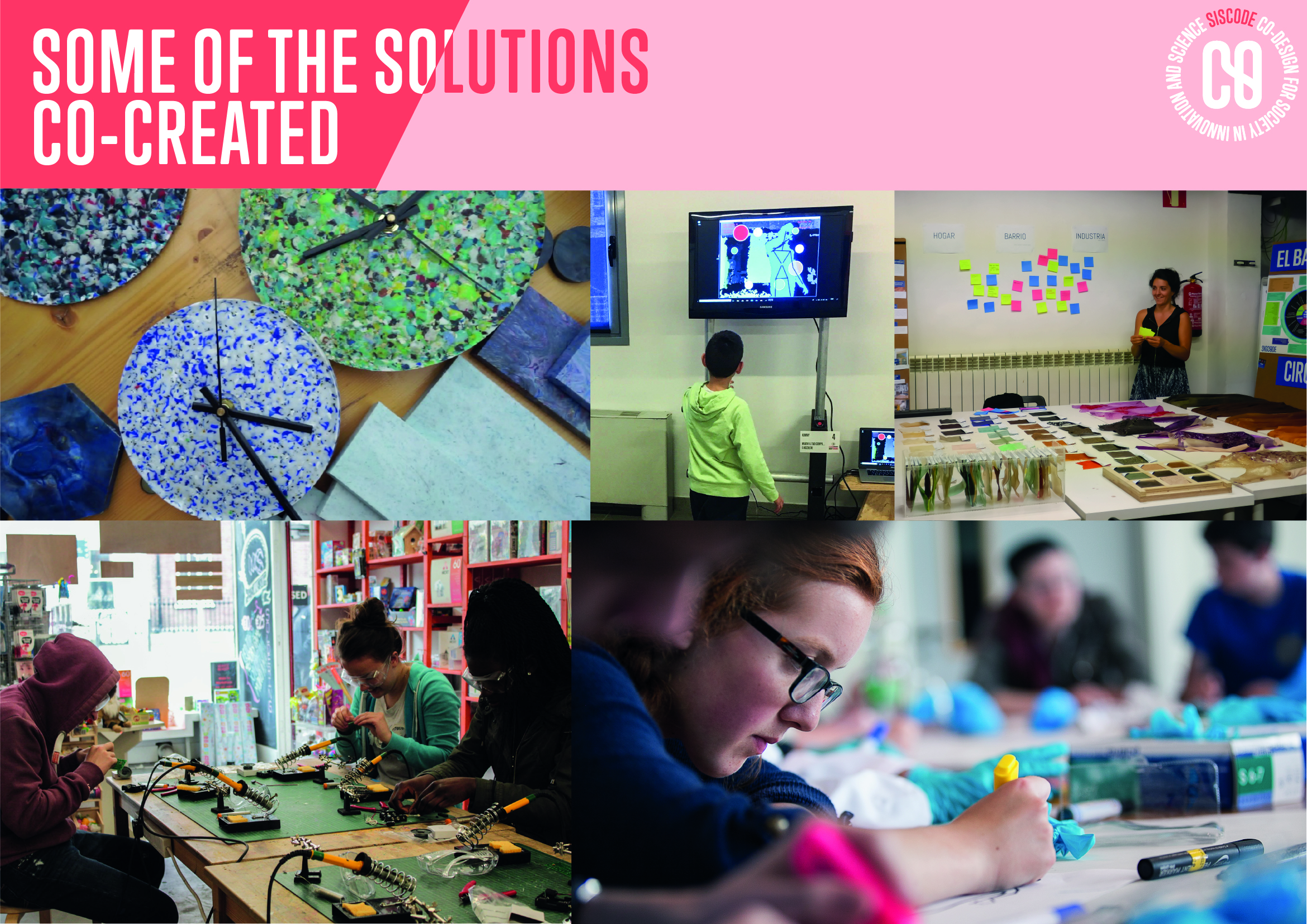SISCODE. Co-design for society in innovation and science
Keywords: Public Engagement, Innovation, Design-Driven
Research unit: Alessandro Deserti, Francesca Rizzo, Felicitas Schmittinger, Ilaria Mariani, Stefano Crabu, Stefano Maffei, Laura Cipriani, Carla Sedini
Politecnico di Milano, Department of Design
E-mail (referent): alessandro.deserti@polimi.it; francesca.rizzo@polimi.it
SISCODE explores bottom-up and design-driven participatory approaches to better integrate civil society in science and innovation. The aim is to pollinate Responsible Research and Innovation, Science Technology and Innovation Policies, gaining knowledge on the favorable conditions that support its effective introduction, scalability and replication. For this purpose, 10 pilots across Europe became innovation ecosystems where to co-create desirable solutions together. Revolving around the concepts of inclusivity, empowerment, and responsibility, SISCODE explores the use of co-design to operationalize Responsible Research and Innovation for a better Europe. Adopting bottom-up and design-driven approaches, it engaged 17 cross-sector partners in expanding knowledge on how co-creation and co-design can foster the development and implementation of user-centered policies to better integrate civil society in science and innovation. For this purpose, 10 labs across Europe successfully engaged multiple stakeholders from the context, researchers, designers, citizens, and policymakers to promote the construction of 10 ecosystems as designing, enabling, and innovative communities where to co-create and prototype solutions to real challenges (SDGs), together. This inclusive engagement allowed to embrace diversity as a value while following principles of (ethical) acceptability, sustainability, social and societal desirability. SISCODE encouraged an eco-systemic design with an eye to circular economy and digital transformation. It also ignited methods and practices for empowering multiple social actors, enhancing awareness of the role of local communities in co-creating together, re-circulating materials and knowledge, leveraging the networked nature of the ecosystem and capitalizing on its varied expertise. Ultimately, going beyond the experimentation scale, the project informed the broader policymaking landscape, giving impulse to changes at a larger.
| Funding: European Union / H2020-SwafS-2016-17 |
| Implementation: Year: 2018 Month: May |



